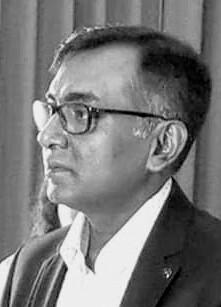Time management is very much important in IIT JAM. The eduncle test series for IIT JAM Mathematical Statistics helped me a lot in this portion. I am very thankful to the test series I bought from eduncle.
Nilanjan Bhowmick AIR 3, CSIR NET (Earth Science)- UGC NET
- English
Sir do tell about criticism on wordsworth .
sir do. tell about criticism on Wordsworth .
- 0 Likes
- 3 Comments
- 0 Shares
-
![comment-profile-img]() >
>
-
![comment-profile-img]() >
>
Deb dulal halder Halder Best Answer
“My own differences from certain supposed parts of Mr. Wordsworth's theory ground themselves on the assumption, that his words had been rightly interpreted, as purporting that the proper diction for poetry in general consists altogether in a language taken, with due exceptions, from the mouths of men in real life, a language which actually constitutes the natural conversation of men under the influence of natural feelings. My objection is, first, that in any sense this rule is applicable only to certain classes of poetry; secondly, that even to these classes it is not applicable, except in such a sense, as hath never by any one (as far as I know or have read,) been denied or doubted; and lastly, that as far as, and in that degree in which it is practicable, it is yet as a rule useless, if not injurious, and therefore either need not, or ought not to be practiced. The poet informs his reader, that he had generally chosen low and rustic life; but not as low and rustic, or in order to repeat that pleasure of doubtful moral effect, which persons of elevated rank and of superior refinement oftentimes derive from a happy imitation of the rude unpolished manners and discourse of their inferiors. For the pleasure so derived may be traced to three exciting causes. The first is the naturalness, in fact, of the things represented. The second is the apparent naturalness of the representation, as raised and qualified by an imperceptible infusion of the author's own knowledge and talent, which infusion does, indeed, constitute it an imitation as distinguished from a mere copy. The third cause may be found in the reader's conscious feeling of his superiority awakened by the contrast presented to him; even as for the same purpose the kings and great barons of yore retained, sometimes actual clowns and fools, but more frequently shrewd and witty fellows in that character.”
-
![comment-profile-img]() >
>
Deb dulal halder Halder
![best-answer]()
Coleridge feels that Wordsworth was justified in pointing out the artificiality of a poetic diction of the eighteenth century, as it was stagnant and to a greater extent hindered the manifestation of the poet‟s experience. But, at the same time, Coleridge disagrees with Wordsworth‟s view that the language of poetry should be “the language of natural conversation of men under the influence of natural feelings.
Do You Want Better RANK in Your Exam?
Start Your Preparations with Eduncle’s FREE Study Material
- Updated Syllabus, Paper Pattern & Full Exam Details
- Sample Theory of Most Important Topic
- Model Test Paper with Detailed Solutions
- Last 5 Years Question Papers & Answers
Sign Up to Download FREE Study Material Worth Rs. 500/-










 >
>








Deb dulal halder Halder![best-answer]()
Coleridge then goes to praise the efforts of Wordsworth “for rejecting the usual ornaments an extra-colloquial style of (his) poems” (poetic diction) in Lyrical Ballads and points out that the assailants of Wordsworth are dubious in presenting their “acrimonius passion” against Wordsworth and his notion of poetry as presented in the Preface to Lyrical Ballads and in practice in his poems.